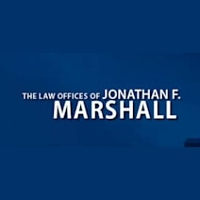In New Jersey, the Fourth Amendment of the U.S. Constitution, along with Article I, Paragraph 7 of the New Jersey Constitution, protects citizens from unreasonable searches and seizures by law enforcement. Generally, a warrant is required for police to conduct a search or seizure. However, there are several important exceptions to this rule. These exceptions are based on specific circumstances where the courts have determined that the need for law enforcement action outweighs the privacy interests of individuals.
If you feel that you have been party to an illegal search and seizure, it is important to reach out to an experienced defense attorney in New Jersey who can look at the circumstances of your case and make sure your rights are protected.
Common Warrant Exceptions For Search in New Jersey
The following are the most common examples of when a warrant is deemed unnecessary to conduct a search and if necessary seizure of certain items.
Consent Searches – A common exception to the warrant requirement occurs if a person voluntarily consents to a search. In New Jersey, if an individual freely and knowingly allows police to search their property, the search is legal even without a warrant. For consent to be valid, it must be:
- Voluntary – The person must not be coerced or forced into agreeing to the search.
- Informed – The individual must understand that they have the right to refuse the search.
Police officers are not required to inform a person of their right to refuse consent, but coercive tactics—such as threats or intimidation—could invalidate the consent.
Search Incident to a Lawful Arrest – When police lawfully arrest someone, they are allowed to conduct a search of the person and the immediate area around them without a warrant. This is known as a search incident to a lawful arrest. The purpose of this search is to:
- Protect officers from potential danger, such as hidden weapons.
- Prevent the destruction or concealment of evidence.
In New Jersey, this exception applies to the area within the immediate control of the arrested individual, such as their clothing, bags, and, in some cases, nearby vehicles.
Exigent Circumstance – Police can conduct a warrantless search or seizure if it is deemed that immediate action is required, and waiting for a warrant could result in harm. Common examples of exigent circumstances include:
- Emergency situations – If there is an immediate threat to life or safety (e.g., hearing gunshots or cries for help), officers are allowed to enter and search a premises without a warrant.
- Pursuing a suspect – If police are in active pursuit of a suspect who flees into a home or building, they can enter without a warrant to continue the chase.
- Imminent destruction of evidence – If officers believe that evidence is about to be destroyed, they can enter and seize it without first obtaining a warrant.
In New Jersey, courts closely scrutinize searches conducted under exigent circumstances to ensure that the situation truly justified bypassing the warrant requirement.
Plain View Doctrine – Under the plain view doctrine, police are allowed to seize evidence or contraband that is in plain sight if they are lawfully at the location where they observe the item. For the plain view exception to apply in New Jersey, three conditions must be met:
- Lawful presence – The officer must be somewhere they have the legal right to be, such as during a traffic stop or while responding to an emergency.
- Inadvertent discovery – The officer must discover the evidence unintentionally; they cannot have orchestrated the situation to see the item.
- Immediately recognizable – The item must be clearly recognizable as evidence or contraband without further investigation or search.
For example, if during a lawful traffic stop for someone who was speeding an officer sees illegal drugs in the passenger seat of a car, they can seize the drugs without a warrant under the plain view doctrine.
Automobile Exception – The automobile exception allows police to search a vehicle without a warrant if they have probable cause to believe it contains evidence of a crime or contraband. This exception is in place because vehicles can be easily driven away with evidence in them that could be destroyed while waiting for a warrant. And although this warrant exception exists there are thresholds that must be met for probable cause, when this is not the case it can lead to the illegal search of an automobile in New Jersey, which is against a person’s rights.
Stop and Frisk – Also known as the Terry stop, a stop and frisk allows police to stop a person based on reasonable suspicion that they are involved in criminal activity and conduct a limited search (frisk) for weapons. This search is for officer safety and is only supposed to be a brief pat-down of outer clothing to check for weapons.
This is not an exhaustive list but does give a good breakdown of most cases where a warrant may be waived as long as proper conditions have been met.
Contact A New Jersey Criminal Defense Lawyer About Illegal Search & Seizure
New Jersey law provides various exceptions to the warrant requirement, allowing police to act quickly in situations where public safety or the preservation of evidence is at risk. While these exceptions provide law enforcement with flexibility, they are not without limits. Courts in New Jersey rigorously review the use of these exceptions to ensure that citizens’ constitutional rights are protected and that police do not abuse their power. If you feel that you have been subjected to police overreach, it is important to reach out to an illegal search and seizure lawyer near you about how they can help you defend your rights and seek justice.



